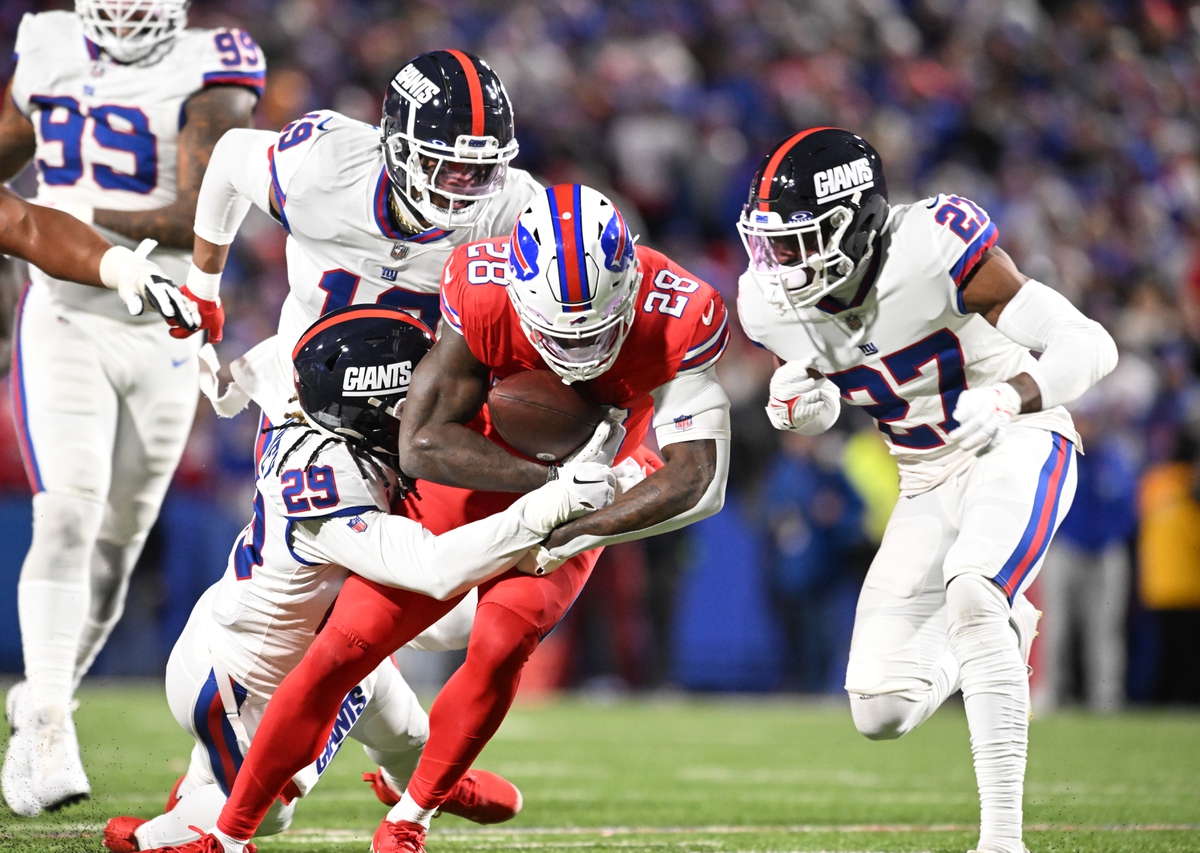Bills Point Differential

Bill Parcell’s famous quote is: “You are what your record says you are.”
Coaches have to think like this but we do not.
The idea of basing power rankings on record was exposed twice just this weekend with undefeated FSU being screened out of the CFB Playoffs (for not being as good as one-loss Alabama) and by the one-win Eagles getting obliterated in Philly by the three-loss Niners.
So let’s do away with focusing on records, which are descriptive of wins but do not predict wins.
Wins Vs. Wins
What is more predictive of wins than wins?
A simple measure of team strength is point differential.
We presently have five teams over 100 points in the statistic: Dallas (168), San Francisco (163), Baltimore (137), Miami (118) and Buffalo (101).
Wait, Buffalo? They’re 6-6 and a major disappointment.
But are they or are they just unlucky in losing a ton of close games while winning blowouts?
The rule of thumb is that teams should split one-score games.
The Bills are 2-6. If they were 4-4, they’d be 8-4 overall instead of 6-6.
How unusual is it for teams to have a plus-100 point differential or better after 12 weeks and not have a winning record?
It’s unprecedented.
The Bills are the only team in NFL history to suffer this fate.
Point Differential As Predictor Of Future Wins
Our premise is that point differential like it was in the Niners-Eagles game, is more predictive of future wins than won-loss records.
So let’s put that theory to the test by looking at the historical teams most similar to the 2023 Bills in underachieving in record relative to their strength in points.
Here are the least successful teams with at least 100+ in point differential in the Super Bowl Era.
2021 Bills (140), 2009 Patriots (104), 1987 Browns (124), 1985 Niners (101), 1967 Chiefs (126). All of them went 7-5 through 12 games.
(Note that the 1954 Giants were 7-5 at plus-109 points but only played 12 games so we’re not able to use them for predictive purposes.)
The key question is, What happened to these teams after their 12th game?
That could give us a reasonable framework for predicting how the Bills will finish this season.
Their combined rest-of-season record was 15-3 (Bills 4-1, Patriots 3-1, Chiefs 2-0, Browns 3-0, Niners 3-1).
If you’re wondering why the Browns played only 15 games, remember 1987 was a strike season.
So the underachievers in wins relative to the strength they showed in outscoring opponents went 35-25 through 12 games and then 15-3, an increase in win percentage of 250 points (.583 to .833).
This model predicts the Bills to win 4.2 games the rest of the season.
Let’s round it down to 4-1, which would allow them to finish 10-7, which would almost certainly qualify for the playoffs (they are +500 to do so now).
Bills’ Future
The Bills do have to play the Cowboys and Dolphins who are even stronger in point differential.
But the Dallas game is in Buffalo and the Dolphins may have nothing to play for the last week of the season.
The other tough game on paper is at Kansas City, though the Chiefs are only plus-67 in our stat and thus weaker despite a stronger W-L record.
Lest we get too high on the Bills, note that none of our teams advanced far in the postseason if they were able to rally enough to make it.
Only the 1987 Browns and 2021 Bills won a playoff game, though both were eliminated in ways that will be forever remembered.
The Browns lost in Denver in the game with a name: “The Fumble,” suffered by Ernest Byner as he was running in for the winning score.
And the Bills were beating the Chiefs and kicking off with 13 seconds left before somehow blowing it.
So maybe there is something here that isn’t pure noise when it comes to these teams losing spectacularly.
The fact that this Bills team is on the list twice in three years is probably not mere coincidence.
But that 2021 Bills team did proceed to play to a level point differential would have predicted.
Football is a game of physical dominance and the 2023 Bills seem able to dominate opponents more often and more thoroughly than all but a handful of teams.
